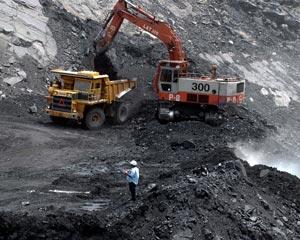
BY MELANIA CHIPONDA
Zimbabwe’s coal industry, plays a significant role in the national economy, and accounts for 60% of the electricity generated in the country, with Hwange producing 380MW and Harare with 19MW.
However, none of the existing coal power plants in Zimbabwe (Hwange, Harare, Bulawayo and Munyati) meet their advertised demand, implying that the Zimbabwe Power Company which is running these investments is sitting with stranded assets, including the labour assets connected to the coal industry.
With the global energy systems shifting from fossils to renewables, it does not come as a surprise that Zesa Holdings is rolling out a US$500 million solar energy projects across the country.
What is worrisome are new investments in coal power plants when we should be taking this opportunity to transition to clean renewable energy.
Investing in new coal technologies means investing in assets which are moving towards redundancy, and moving rather fast.
Apart from the greenhouse gas emissions which cause global warming, coal power plants are a threat to public health and undermines the rights of women.
Impacts of coal on women’s bodies Air pollution associated with coal-fired power plants is associated with many adverse health outcomes which range from cardiorespiratory diseases to high mortality rates.
- Chamisa under fire over US$120K donation
- Mavhunga puts DeMbare into Chibuku quarterfinals
- Pension funds bet on Cabora Bassa oilfields
- Councils defy govt fire tender directive
Keep Reading
This affects women disproportionately and increases women care-work burden.
Pollutants from coal are linked to negative pregnancy-related health conditions and birth outcomes which include gestational hypertension, premature delivery and low birth weight in newly born babies.
These negative health points have devastating impacts on women’s bodies and psychological wellbeing.
The toxic chemicals released into the atmosphere by the coal power plants are known to be deleterious to human life, particularly the lives of the unborn foetuses.
The closer pregnant women stay to the coal power plants, the more their chances of adverse birth outcomes.
This is one of the multitudes of reasons why women are at the frontlines of anti-coal struggles globally.
Given the vast evidence of the negative impacts of coal on the environment and its inhabitants, governments must be divesting from coal and shutting down the existing coal power plants in order to mitigate the adverse health impacts and global warming.
Coal and women’s care-work burden Through a process of coalification, coal was formed over centuries of years by dead matter, and it contains carbon, hydrogen, sulphur and some amounts of nitrogen and heavy metals. The combustion of coal releases poisonous gases which have devastating impacts on people’s health and the environment.
During combustion, the carbon, sulphur and nitrogen in coal combine with oxygen to produce carbon monoxide, carbon dioxide, sulphur trioxide, sulphur dioxide, nitrogen dioxide and nitrogen oxide which is associated with heart, skin, brain, lung and brain diseases and various cancers.
These harmful impacts of coal increases women’s care-burden because women spend considerably more time on unpaid care-work than men due to entrenched patriarchal attitudes which view unpaid care-work as a female prerogative.
Women across regions, socio-cultural classes and cultures spend a lot of time meeting the expectations of their domestic and reproductive roles.
Coal power plants are a women’s rights issue, and a justice issue as women are inexplicably impacted as compared to other members of society.
Coal is regarded as “cheaper” than other energy sources because women bear the biggest cost of its extraction and combustion because of its damaging impacts on communities’ health and environment.
The diseases associated with emissions from coal power plants decrease life expectancy, therefore, making women’s laborious lives even shorter.
Due to the fact that coal kills, women across the globe are on the frontline of anti-coal struggles.
Impacts of coal on peasant women Apart from the environmental harm that is caused by coal mining, coal power plants produce sulfuric acid and other gases which cause acid rain.
Acid rain directly affects agriculture by decreasing soil quality and damaging plants.
The majority of women in Africa are employed in the agricultural sector as food producers and therefore their productive capacity is compromised as a result of coal power plants.
Acid rain affects the quality and yield of agricultural crops through damaging the plant leaves and roots.
Due to its acidic nature, acid rain leaches plant nutrients out of the soil, therefore making it less productive.
This reduced productivity increases women’s drudgery as they have to put more hours of work and more effort for less produce, therefore impacting on their food self-sufficiency.
Women, peasants and everyone in the world must unite and stop investments in coal-fired power plants.
Coal power plants emit most of the greenhouse gases into the atmosphere which cause climate change. Africa and the rest of the world are in a climate crisis as a result of coal, oil and gas projects, and the time to stop the expansion of coal project is now.
Africa is facing one climate-induced disaster after another due to climate change and none of the investors in coal and other fossil fuels projects has been held to account for the deaths of both flora and fauna.
The world’s peasant women, the working class and other poor communities are paying the cost of coal mining and combustion with their lives.
This is the time to invest in clean energy sources, and protect the lives of peasants and working-class women, and men.
l Melania Chiponda is a feminist and PhD researcher on energy and climate change











